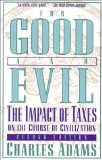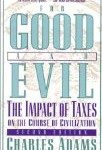Don’t Forget About State Estate & Inheritance Taxes

 The federal “death tax” may or may not rise from the dead in 2010. However, Washington State may double its state estate tax to 38% for estates at or above $9 million. Will other states follow this year?
The federal “death tax” may or may not rise from the dead in 2010. However, Washington State may double its state estate tax to 38% for estates at or above $9 million. Will other states follow this year?
Washington state proposes ‘shocking’ estate tax changes
The Washington state Legislature has proposed a bill that would double the estate taxes for residents.
Currently, there is a $2 million exemption in that state, with a 10% tax that climbs up to 19% at $9 million and above. Under the proposed law, the range would jump to a 20% estate tax for more than $2 million, up to 38% at the $9 million mark.
If the latest proposal is enacted, 2011 could be a costly year for some Washington residents: Assuming that the federal estate tax, which lapsed at the end of 2009, comes back next year with a $1 million exemption at 55% as scheduled, Washington residents could be paying in excess of 75% in estate taxes, experts said.
“This is shocking and disturbing, and has very significant ramifications for the majority of our clients,” said Tom Gores, a partner in Perkins Coie LLP, a law firm with offices in Seattle and Bellevue, Wash. “We are contacting our state representatives to make sure they understand this.”
Already, a number of wealthy clients are discussing leaving the state due to the high estate taxes, and this number will only increase, said Dean Butler, an attorney at Carney Badley Spellman PS. The bill, HB 3184, was proposed Feb. 13 and has not yet been scheduled for a hearing, said Rick Person, a coordinator for the House Finance Services Committee. The legislative session ends March 11.
Small businesses already are planning to lobby against the bill. “Our greatest concern is that this bill is another threat to small businesses at a time when so many of them are still just holding on,” said Jocelyn McCabe, a spokeswoman for the Association of Washington Business, which represents 6,900 state businesses.
Experts predict that given the number of states with growing deficits, Washington won’t be alone in proposing such legislation this year.
For financial advisers, this means that it’s more important than ever to pay attention to what’s going on locally, said Gail Cohen, head of global wealth management at Fiduciary Trust Company International. “Don’t assume that just because there is no federal estate tax, there won’t be any estate tax at all,” she said.
Source: http://www.investmentnews.com/apps/pbcs.dll/article?AID=/20100216/FREE/100219915
There are currently 14 states and the District of Columbia which have state estate taxes. You can click here to see a chart of the states and the exemption amounts. Did you know that 7 states have an inheritance tax? Click here for a chart and be glad your state is not listed!
“For Good and Evil: The Impact of Taxes On the Course of Civilization” by Charles Adams

 Today being March 15th, let’s celebrate “Tax Day” for corporations in America by taking a look at a wonderful book on the impact of taxation on throughout recorded history.
Today being March 15th, let’s celebrate “Tax Day” for corporations in America by taking a look at a wonderful book on the impact of taxation on throughout recorded history.
Charles Adams’ book helps us understand why historical events happened and offers many lessons to us today. Some simply are facinating:
- The Rosetta Stone’s words were literally written in stone to memorialize tax exemption for priests and were found in all temples.
- Egyptians taxed cooking oil at 20% and scribes “made regular inspections of all kitchens to make sure wives were not using free drippings in place of the taxed oil they were required to use.”
- Queen Elizabeth I once said, “To tax and to be loved is not given to man.” She chose to be loved by her subjects and “to accept what revenue they were willing to give her.” No oaths, no inquisitions, and no coercion. Yet when the need arose, she was given the tax money to defeat the Spanish Armada and position England to become a superpower.
- The Spanish Empire collapsed for the same reason as Rome: farmers were taxed heavily and civil servants were tax exempt. So farmers naturally quit farming to take government jobs.
You’ll also see why the power to tax and the power to spend should not be held by the same branch of government be it the King, the Parliament, or the Congress. For instance, Queen Elizabeth had the power to spend money on the army and navy but only Parliament could authorize new taxes.
This book should be required reading for all Congressmen. Why keep making the same tax policy mistakes which have plagued countries in the past?
New Federal Estate Tax: Who it hurts and who it helps
Let’s remember what Milton Friedman said about tax cuts, “I am in favor of cutting taxes under any circumstances and for any excuse, for any reason, whenever it’s possible.” Is this always true? Not when Congress eliminates the federal estate tax while limiting the step up in basis. Some families will be helped and many others will be hurt.
Read this Wall Street Journal article and learn who is hurt by this change. It could be some of your best clients.
Why No Estate Tax Could Be a Killer
By Laura Saunders, The Wall Street Journal, 2/13/2010
Congress shocked everyone by letting the estate tax lapse on Jan. 1.
Now, here is the real stunner: For many, the lapse actually will raise taxes.
Under last year’s law, estates up to $3.5 million, or $7 million for married couples, were exempt from federal tax. This year that law has been replaced by a fiendishly complex levy raising taxes on the assets of those with little as $1.3 million. It will affect the heirs of at least 50,000 U.S. taxpayers who die this year, whereas the old law affected only about 15,000 estates a year, according to the Tax Policy Center.
“The new system is far worse for many people who have assets between $1.3 million and $3.5 million,” says veteran estate lawyer Ronald Aucutt, of McGuire Woods.
This little-understood facet of the current law was enacted as part of a deal brokered in 2001 with the expectation Congress would never let the estate tax actually expire. It isn’t clear when, or even if, a badly polarized Congress will take up the estate tax this year.
Legal Challenges
If lawmakers do bring back the estate tax, that would bring another set of problems. Reinstatement of the tax retroactive to Jan. 1, which many advocate, will bring legal challenges from wealthy estates that could take years to resolve. But if some version of the old system isn’t reinstated, heirs of smaller estates will suffer.
To see what is at stake, consider how differently this year’s and last year’s regimes treat the same asset held by two fictional widows: Ms. Bentley has total assets of $20 million, while Ms. Subaru’s total is $2 million. Each owns a $110,000 block of the same stock bought for $10,000 years ago. This simplified example uses a block of stock, but its logic applies to all appreciated assets, including houses and land.
Under current law Ms. Bentley and her heirs prosper. If she dies this year and the stock is sold, her heirs will owe only a $15,000 capital-gains tax, whereas last year the same move would have incurred nearly $50,000 in estate tax. By contrast, Ms. Subaru’s heirs would have owed nothing last year because the estate was below the $3.5 million exemption. This year they would owe the same $15,000 capital-gains tax Ms. Bentley’s heirs do.
The reason: Under the old estate tax, assets could be written up to their full value at the death of the owner, and neither widow had to pay capital-gains tax on the $100,000 increase in the stock last year. But current law fully taxes gains while imposing no tax on estates. Quite simply, the demise of the 45% estate tax helps Ms. Bentley and her heirs more than the 15% tax on appreciation hurts them. For Ms. Subaru, the reverse is true.
Winners and Losers
Beth Shapiro Kaufman, an attorney with Caplin & Drysdale, made estimates showing who is better off under last year’s versus this year’s system. She found that heirs of estates with assets totaling between $1.3 and $4.3 million would often have been better off last year, while those with bigger estates will do better this year.
Current law does give some relief to heirs of smaller estates. All estates receive at least $1.3 million of exemption from the tax on appreciation. The executor can “cherry-pick” assets after death and assign the exemption to maximize its value.
But the law is full of traps and demands detailed record keeping. Experts are telling those affected to avoid irrevocable actions, like distributing or selling assets, while the situation remains unresolved.
Some hope that Congress will wind up doing what it did when a similar tax regime was tried in the late 1970s. It was repealed after an uproar, but the estates of those who died while the law was in flux got to choose which system to use.
Such an approach could avoid some ugly family situations. Last December, some wealthy people were kept alive until the estate tax lapsed in January. “But if the tax comes back,” says Mr. Aucutt, “Relatives might be tempted to pull the plug.”
How can Congress solve this problem? I like the solution proposed in the article: let families choose between estate tax systems.
You better keep your clients up to date on what’s happening with the estate tax. Don’t wait for the annual review. And don’t let one of your competitors tell them about it first. You might lose a client.
On the other hand, you’d be doing your competitors’ clients a favor if YOU let them know what’s going on. One way would be to put on free public seminars on estate planning. Establish yourself as your city’s expert on estate planning. Take a look at my estate seminar system and you could be giving your first seminar in 30 days!
NY Times Editorial: “An Estate Tax Mess” and Your Clients
 You need to keep your finger on what’s hot in the economy as well as in the political realm. Do you sense a growing wave of discontent with what the “political class” is doing to the middle and even upper classes these days? Wall St. gets a bailout and Main St. is left to fend for itself?
You need to keep your finger on what’s hot in the economy as well as in the political realm. Do you sense a growing wave of discontent with what the “political class” is doing to the middle and even upper classes these days? Wall St. gets a bailout and Main St. is left to fend for itself?
The failure of Congress to means that the super rich (maybe 5500 estates in the US) will benefit from the repeal of the estate tax for 2010. Congress’ failure also means that approximately 70,000 families will get hit by the repeal of the step-up in basis. As this word gets out on this, you’ll see editorials in your local paper like this one in yesterday’s New York Times.
You need to get up to speed on all of this and communicate what’s going on to your clients. Then you’ll be in a position to help your clients take evasive action appropriate steps to protect their estates. While you’re helping your upper end clients with this, don’t forget to ask them if they have friends who need similar advice. Maybe you can talk to them before their advisor gets up to speed.
An Estate Tax Mess
Published: December 27, 2009
For much of the last eight years, the majority Republicans pushed through tax break after tax break that mostly benefited the wealthy. Now in the majority, Democratic lawmakers have failed to stop yet another tax benefit for the richest of the rich from taking effect in 2010.
The tax in question is the estate tax, which President George W. Bush and Republicans and some Democrats in Congress were determined to cut from the day Mr. Bush took office in 2001. Even then, the tax hit only a tiny portion of Americans, but estate-tax foes sold Americans a myth about a “death tax” that prevented average people from passing on hard-earned money.
The result was a measure that made big reductions in the federal estate tax, phased in through 2009, and then repealed the tax, for one year only, in 2010. After that, the tax is to be reinstated at pre-2001 levels. Writing the law in that convoluted way helped to mask the true costs. It also created an untenable situation in which a one-year repeal is followed by reinstatement.
There was a giant catch, as well. In 2010, the one-year repeal of the estate tax is coupled with a new tax that will hit smaller estates. That tax could affect up to an estimated 70,000 estates next year, compared with the current estate tax law, which applies to about 5,500 estates annually. If that sounds wacky, it is. It would also be harmful to many small family businesses, precisely the group that estate-tax cutters say they want to help.
Today, the estate tax applies to estates that are worth more than $7 million (for couples), or $3.5 million (for individuals). More than 99 percent of all estates are exempt, so there is no reason to reduce or repeal the tax.
In addition, under today’s law, when heirs sell inherited property, no capital gains tax is due on the increase in value that occurred during the lifetime of the original owner. (If your parents pass on stock worth $2 million that they bought for $200,000, and you sell it for $2 million, you owe no tax on the $1.8 million gain.)
But when the estate tax is repealed in 2010, the capital gains tax will kick in once the gains in an estate exceed $1.3 million. There’s an extra $3 million exemption for assets left to a spouse.
The bottom line is this: there will be many more losers than winners under estate-tax repeal, and the losers will be among Americans who are farther down the wealth ladder.
Earlier this month, the House voted to continue the estate tax permanently as it is this year, with its more-than-generous exemptions and no tax on the sale of inherited assets.
The Senate has failed to act. Republicans refused to consider the House bill or even a two-month delay to allow time for debate. Democrats correctly refused to consider a proposal to increase the exemption to $10 million for couples and $5 million for individuals, an unconscionable giveaway to the wealthy at a time when ordinary Americans are suffering. Compared with keeping the 2009 law, it would cost $250 billion more over 10 years.
Democratic Senate leaders have said that in 2010, they will seek to restore retroactively the 2009 estate tax rules. Fairness, progressivity and the need for revenue demand just that. But failure to act in a timely way is a disturbing display of intransigence and failed leadership. That bodes ill for the more daunting tax debates next year, when the rest of the Bush tax cuts are set to expire.
American taxpayers need — and deserve — better.
Not Just Estate Tax Expiring at Year End
 [Richard: The debate over healthcare reform has sucked all the air out of Washington DC. Not just the hot air…the result has been over 50 tax breaks for business and individuals will now expire on December 31st. Get ready for lots of questions from your clients.]
[Richard: The debate over healthcare reform has sucked all the air out of Washington DC. Not just the hot air…the result has been over 50 tax breaks for business and individuals will now expire on December 31st. Get ready for lots of questions from your clients.]
Congress Lets 50 Tax Breaks Expire
http://www.forbes.com/2009/12/22/tax-amt-research-credit-senate-personal-finance-expiring-tax-breaks.html
Ashlea Ebeling, 12.22.09, 3:00 PM ET
When members of the U.S. Senate finally head home this week, they will be leaving the future of 50 individual and business tax breaks in limbo. All expire at the end of 2009.
Among the disappearing breaks are the research tax credit and an annual alternative minimum tax “patch,” which keeps 23 million additional middle-income Americans from being forced into calculating and paying the dreaded AMT. (For 2009, with the patch in place, 4 million upper-middle- and high-income families will pay AMT.)
Most of the fading-out-50 can, and likely will, be reauthorized retroactively, creating an inconvenience for some taxpayers, but not the same sort of mess as Congress’ failure to resolve the future of the estate tax. The estate tax will expire at the close of Dec. 31 and Democrats are pledging to resurrect it retroactively, leading to all sorts of potential legal problems, as well as some planning opportunities for wealthy families.
Among the expiring individual tax breaks: the deduction for state and local sales taxes for itemizers (which benefits mainly residents of states that don’t impose an income tax); the additional $1,000 deduction for real estate taxes for those who claim the standard deduction; the $4,000 deduction for college tuition; and a special $250 deduction for teachers who spend their own money on classroom supplies.
This isn’t the first time Congress has let some of the 50 breaks lapse. In fact, expiring provisions have come to be known as “extenders,” because instead of eliminating them or making them permanent and recognizing their true costs, Congress simply extends them year by year.
This time around, on Dec. 9, House Democrats pushed through a bill extending most of the breaks at a cost of $31 billion. The Senate, mired in partisan warfare over health care reform, never took up a similar measure. On Tuesday, Senate Finance Committee Chairman Max Baucus, D-Mont., and Ranking Member Charles Grassley, R-Iowa, issued a joint letter promising to extend the provisions retroactively as soon as possible.
But taxpayers can’t count on early action. “We’ve seen this movie before,” sighs Clint Stretch, managing principal of tax policy with Deloitte Tax. “When this has happened in the past, it’s been literally months before Congress has gotten around to fixing things.” For example, Congress finally included dozens of lapsed tax breaks in the October 2008 bank bailout, making them retroactive to Jan. 1, 2008.
Meanwhile, taxpayers have some decisions to make. For example, if the AMT patch isn’t passed by the time their first 2010 estimated tax payments are due in April, they’ll have to decide whether to pay extra money or risk underpaying and incurring a penalty. One lapsed provision allows taxpayers age 70-and-a-half or older to transfer up to $100,000 directly from an IRA to charity without booking the amount transferred as income. Older folks planning a charitable gift may want to do this before Jan. 1.
For businesses, the lapsing of the R&D credit–a $7 billion a year break–is a particular problem, since companies must plan for long-term research commitments amid uncertainty. Since its enactment in 1981, the credit has been extended 13 times; in the mid-1990s there was a one-year gap when it wasn’t extended retroactively.
[snip]The House extenders bill passed Dec. 9 didn’t include the AMT patch. Stretch says it’s likely the AMT patch and the traditional extenders, including the research credit, will be extended for 2010 sometime next year. Still, with the budget deficit growing, the Bush-era tax cuts set to expire at the end of 2010, and economic advisers to Obama looking at options for tax reform, nothing is certain.
“Who knows what’s going to happen next year?” asks McGuire.
Clock Ticks On Estate Tax
[Richard: Read this update on the non-extension of the federal estate tax. There is some confusion out there: while the House did vote to extend the 2009 rates/exemptions into 2010 and beyond, the Senate didn’t get to it. Read this article for the implications of this non-action.]http://www.fa-mag.com/fa-news/4956-clock-ticks-on-estate-tax.html(Dow Jones)
As Congress appears ready to let the federal estate tax lapse on January 1, a dramatic question is what a repeal will do to millions of less affluent taxpayers.
Many who now would owe neither estate nor capital gains tax on inherited assets will owe significant capital gains. And that’s just one of the troubling aspects of a repeal.
There are also serious questions about how families with ailing relatives would be affected–a subject of gallows humor since a one-year repeal of the tax was first envisioned for 2010 years ago.
Anyone who turns to a professional for help with all of this is likely to find advisers still sorting through the answers. A big question is whether Congress will enact a retroactive tax, and how it would play out.
Catherine G. Schmidt, an estate-planning attorney and partner at the law firm Patterson Belknap Webb & Tyler LLP in New York, says her firm is working in what could be a narrow window to help clients take advantage of the repeal and avoid a retroactive tax. But, she adds, strategies to this end “are not something anybody already has in their pockets.”
Indeed, most advisors truly believed Congress would never let it come to this.
“The estate-planning community is astounded that we’ve reached this point,” said Schmidt.
Under current law, the estate tax disappears for a year in 2010 and then is reinstated in 2011. President Barack Obama blocked a short-term extension Wednesday, but Senate Finance Committee Chairman Max Baucus (D., Mont.) said he will try to move legislation early in 2010 that ensures there won’t be a window where wealthy estate owners who die will escape the tax.
For many advisors, the most striking aspect of a repeal is that, along with the estate tax itself, a step-up in cost basis for income tax purposes would go away. The step-up values inherited assets for tax purposes at what they were worth when the person who bequeathed them died. Starting January 1, though, assets will be valued at the original cost of the asset.
So, at a relative’s death, “families that would not have had to pay the estate or capital gains tax now may have to pay a capital gains tax on assets that have appreciated in value during the deceased person’s lifetime,” said Warren Racusin, chair of the trusts and estates practice at law firm Lowenstein Sandler in Roseland, N.J.
Racusin mentioned a client whose parents gave him Microsoft Corp. stock when he was younger, purchased for relatively little, that is now worth $6 million. If the man were to die in 2009, his family would not owe capital gains tax on the appreciation. And, with good estate planning by the man and his wife, there might be no estate tax due either, because a couple can shelter up to $7 million from federal estate tax.
If the man were to die on January 1, 2010, however, his wife could owe capital gains of around $340,000 on the $6 million, figuring in a $3 million exemption for spouses, and another $1.3 million exemption for whoever inherits.
As for a retroactive tax, it would likely raise some complications if lawmakers wait too long to enact it. Relatives of some people who die in a prospective estate-tax-free period–after the end of the year but before a new tax is enacted–would surely not be pleased. Quite certainly, some would challenge the constitutionality of the tax, according to tax analysts.
Nonetheless, both the lower courts and the Supreme Court historically have defended retroactive taxes. The high court, in fact, has been upholding retroactive tax increases since as long ago as 1874.

![[TAXREPORT]](https://sg.wsj.net/public/resources/images/MI-BB432_TAXREP_NS_20100212213220.gif)